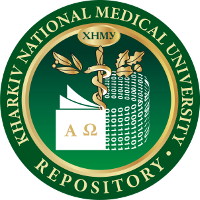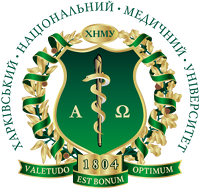Будь ласка, використовуйте цей ідентифікатор, щоб цитувати або посилатися на цей матеріал:
http://repo.knmu.edu.ua/handle/123456789/31955| Назва: | Comparison of the effects of testosterone on pre- and posthysterectomy findings in transgender Individuals |
| Автори: | Uzel, Kemine Lakhno, Igor Eminli, Itibar |
| Теми: | transgenders testosterone white blood cell count creatinine |
| Дата публікації: | 15-сер-2021 |
| Видавництво: | Japan University of Health Sciences & Japan International Cultural Exchange Foundation |
| Бібліографічний опис: | Uzel. K. Comparison of the effects of testosterone on pre- and posthysterectomy findings in transgender Individuals / K. Uzel, I. Lakhno, I. Eminli // International Medical Journal. – 2021. – Vol. 28, No. 4. – P. 407–410. |
| Короткий огляд (реферат): | Objective: This study aimed to investigate the effect of testosterone on complications and blood parameters in transgender individuals undergoing hysterectomy. Methods: This case-control study was carried out by examining the files and records in the hospital automation system of individuals who underwent laparoscopic hysterectomy and oophorectomy for a female to male transgender change in our hospital. To achieve normal male physiologic testosterone levels, transgender individuals (n = 12) were given intramuscular testosterone esters for two years before surgery. The drug dose was initially administered every three weeks, then adjusted according to the patients response. The control group (n=20) was selected from women who underwent hysterectomy and oophorectomy in the same hospital and study period. Results: When the research and control groups were compared concerning blood values, there was no significant difference in preoperative white blood cell (Z = 0.262, p = 0.795), neutrophil (Z = 0.384, p = 0.704), and lymphocyte levels (Z = 0.481, p = 0.634). However, a significant difference was found in the postoperative levels of the same measurements (Z = 2.457, p = 0.020; Z= 7.310, p = < 0.001; and Z = 6.586, p < 0.001, respectively). Regarding preoperative and postoperative measurements, leukocyte and neutrophil levels increased, while lymphocyte and hemoglobin levels decreased in both groups (p < 0.001). Besides, the study group had higher creatinine levels than the control group (Z = 3.817, p = 0.001). Conclusion: Testosterone has anti-inflammatory effects. Additionally, it substantially influences hemoglobin. Thus, testosterone can be considered as an option in selected cases. However, it's potentially harmful effect on the kidneys should always be kept in mind. |
| URI (Уніфікований ідентифікатор ресурсу): | http://repo.knmu.edu.ua/handle/123456789/31955 |
| ISSN: | 2436-3294 |
| Розташовується у зібраннях: | Наукові праці. Кафедра акушерства та гінекології № 3 |
Файли цього матеріалу:
| Файл | Опис | Розмір | Формат | |
|---|---|---|---|---|
| 284407-1.pdf | 718,76 kB | Adobe PDF | Переглянути/відкрити |
Усі матеріали в архіві електронних ресурсів захищені авторським правом, всі права збережені.

